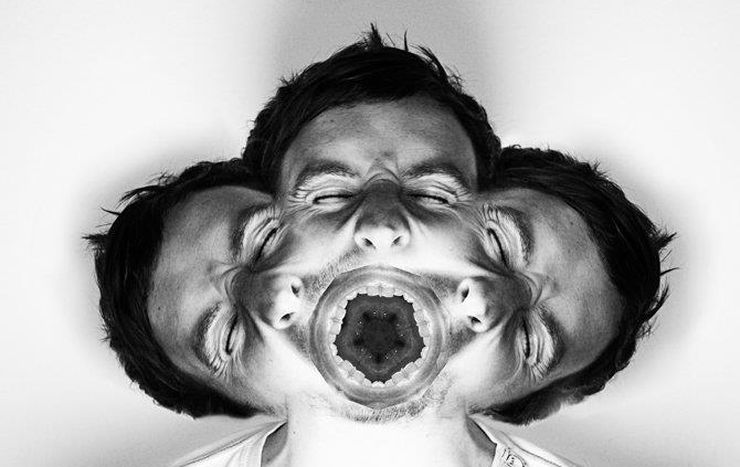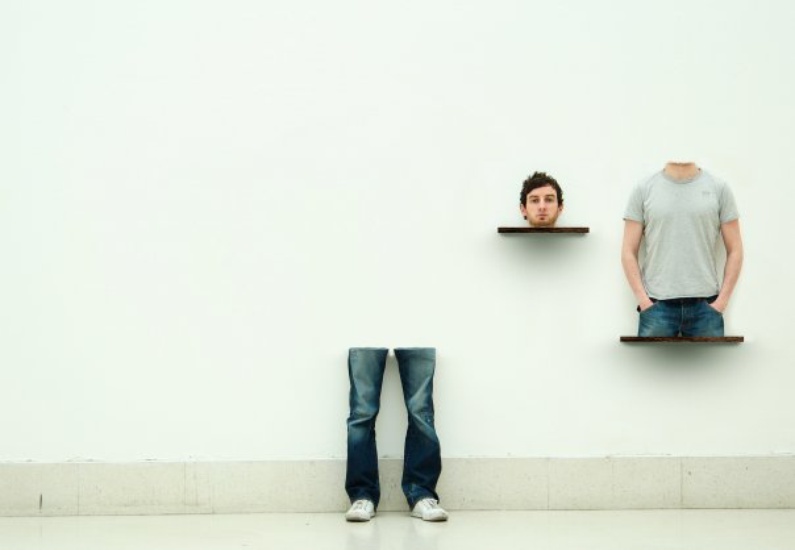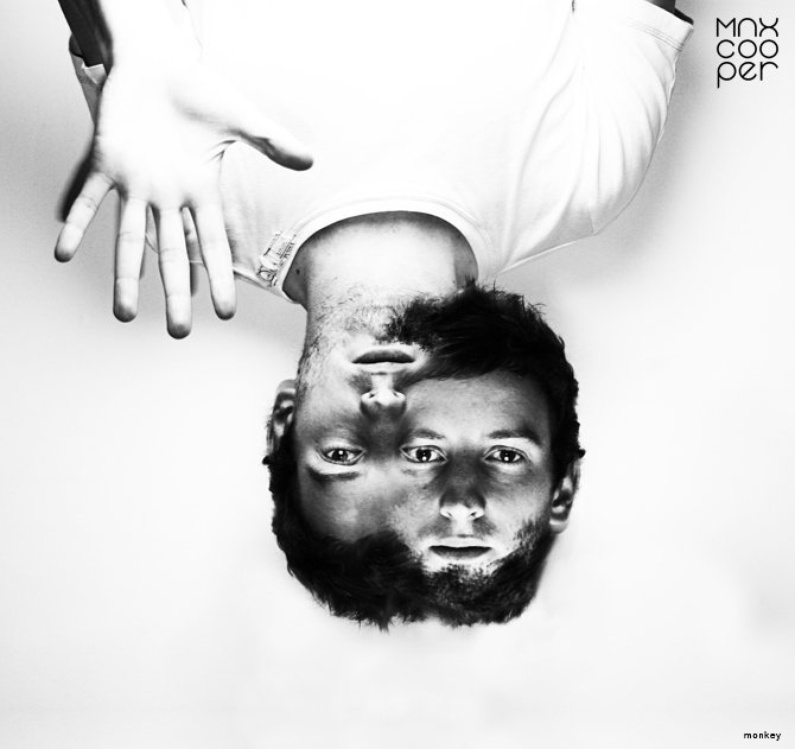
Max Cooper: Free Will, Science and Electronic Music
Published on
Max Cooper did a PhD in computational biology, making club music & DJing on the side. When funding was cut for his postdoc genetics research he started producing music full time. After 100s of releases and a decade on the club scene, he’s finally releasing his first album. It’s been a long time coming. What is Max up to? We talked about free will, science, computers and music.
My head hurts and it’s Max Cooper’s fault. I saw him play in Paris last night. 12 hours after Max finished his set I’m at his hotel to see him face to face instead of across a room of bobbing heads. We shake hands and Max smiles warmly. I smile weakly. He’s blissfully unaware of what he’s done to me. We step out into the winter sunshine and walk to a nearby café.
Max is quiet and unassuming. He wants to know more about me than to talk about himself, but unfortunately that’s not the way interviews work. I ask him about his trip to Paris, and what it’s like to travel the world as a musician. There’s no mention of opulence or excess, just a burning curiosity about the way the world works. He talks about “how political views influence the way the news is presented” in different countries, and bemoans the worldwide divide between the rich and the poor. He mentions the problems of currency devaluation in Argentina. I can tell this is going to be no normal music interview.
 “The album’s called 'Human',” he tells me, “the basic idea is that each track tries to convey a different aspect of the human condition.” Like what? “There’s one called ‘Seething’ which is a really angry track,” Max explains, “it’s seething and gritty, a simple communication of a concept.” The song’s simmering energy certainly riles you up and raises your hackles, seething indeed.
“The album’s called 'Human',” he tells me, “the basic idea is that each track tries to convey a different aspect of the human condition.” Like what? “There’s one called ‘Seething’ which is a really angry track,” Max explains, “it’s seething and gritty, a simple communication of a concept.” The song’s simmering energy certainly riles you up and raises your hackles, seething indeed.
What about free will?
“Then there’s some more abstracted ones like ‘Woven Ancestry’,” he continues, “which is making a point about every person being a woven product of all their past; the ideas of their ancestors have all fused together with their genetics to form the individual.” How on earth do you capture that in music? “I used different ancient instruments from around the world,” he explains, “every instrument playing at different rhythms, all merged together in this big woven tapestry of plucked instruments that represent the concept.”
And this is where we take a break from music. Max orders a ham and cheese crepe with tap water. I’m not yet ready for consumption. “If the individual is a product of their ancestry- their genetics, and all of the social and cultural interactions they’ve had, does this not negate the concept of free will?” I ask with a scratch. “I would say we’re not free in that sense- we are shackled by determinism and randomness,” Max replies, “you’re not free to break the rules of the universe, so we’re all slaves to the system. But at the same time, we are our brains, and our brains are free to act as they always do, and that is essentially free will.”
Max Cooper's music video Micron
“But I don’t have a problem with that,” he continues, “because I can’t see it being any other way. We’re inseparable from the circuitry of our brains and if you accept that then the problem disappears.” This sounds like an alarmingly mechanised vision of humanity, but Max allays my fears with a caveat, “I’m not a total functionalist either. Science still only explains the objective things and there’s a whole subjective world which we experience which science doesn’t explain.” Max pauses before rolling out his ideas with elegance and calm. With his sedate black jacket and glass of tap water, he is the picture of sobriety. 12 hours ago the same man had a heaving room in throes of euphoria.
The confrontation between objectivity and subjectivity, between science and art, seems particularly pertinent for a man making emotional music with machines. Is there not a certain dislocation? Max explains that computers and the universe both follow fixed sets of rules. Yes, “computers are totally deterministic” whereas the “there is an element of randomness and unpredictability” in the universe, he admits, “but I don’t see a contradiction in the way that we are and the way that computers are- it’s sort of two sides of the same coin. So conveying human emotions in electronic music is something natural.”
"The Intricacies of the Molecules"
Much as he loves computers and the regimentation of their rules, on ‘Human’, Max makes use of physical instruments more than he has before. “In real instruments you get that randomness, richness and complexity from the real world, whereas in computational music you strip that away,” he says. “If you listen to a violin, the actual intricacies of the molecules, how the molecules are formed together to make the wood and the strings, there’s a lot of randomness and complexity in there.” His food arrives. The interplay between randomness and order is played out in the contrast between the tangled chaos of the Edam and the carefully crenelated folds of the crepe. Such obscure observations should go unnoticed.
 So what is Max Cooper’s music actually like? Something like a Mike Oldfield – Jon Hopkins hybrid, but then again it’s nothing like anything or anyone else. Similarly, this conversation about free will, science, chaos and computers is unlike any I’ve had before. Sometimes glitchy, sometimes driving with club vibes, sometimes ephemeral and transportive with spectral soundscapes spanning vast mental spaces, always progressive; his songs lead you through a spectrum of emotion; you never feel the same from start to finish.
So what is Max Cooper’s music actually like? Something like a Mike Oldfield – Jon Hopkins hybrid, but then again it’s nothing like anything or anyone else. Similarly, this conversation about free will, science, chaos and computers is unlike any I’ve had before. Sometimes glitchy, sometimes driving with club vibes, sometimes ephemeral and transportive with spectral soundscapes spanning vast mental spaces, always progressive; his songs lead you through a spectrum of emotion; you never feel the same from start to finish.
“I always try and tell stories and paint pictures,” says Max. “I’ll tell you a story,” I reply suddenly, surprising myself. “I first came across your music when I lived in Moscow. Snow stifles colours and scents and muffles sounds, so during winter in Moscow you move in a world of reduced sensation. After six months of snow and hibernation, spring comes suddenly, the sun dispels the snow and the city explodes with flowers. I climbed up a tree in full blossom in an orchard and listened to your remix of Sansula over and over. I felt like the tree was growing around me.” I stop suddenly, embarrassed, remembering that I’m interviewing Max, not being interviewed by him. But Max smiles and I feel vindicated. He says his songs are inspired by powerful emotions, ideas or experiences. He looks up dreamily and tells me ‘Meadows’ was inspired by “a summer day out in the English countryside, with all the flies and the bees and the sun”.
Max says his music is all about capturing his feelings and inspiring the same in his listeners. My day in a tree in Moscow and my night in a club in Paris tell me that, as far as I am concerned, Max has achieved that and then some. He prophetically tells me that biotechnology will revolutionise the world in a hundred years. I tell you that ‘Human’ will revolutionise your day in a hundred minutes.
The full interview will soon be available to read here.



